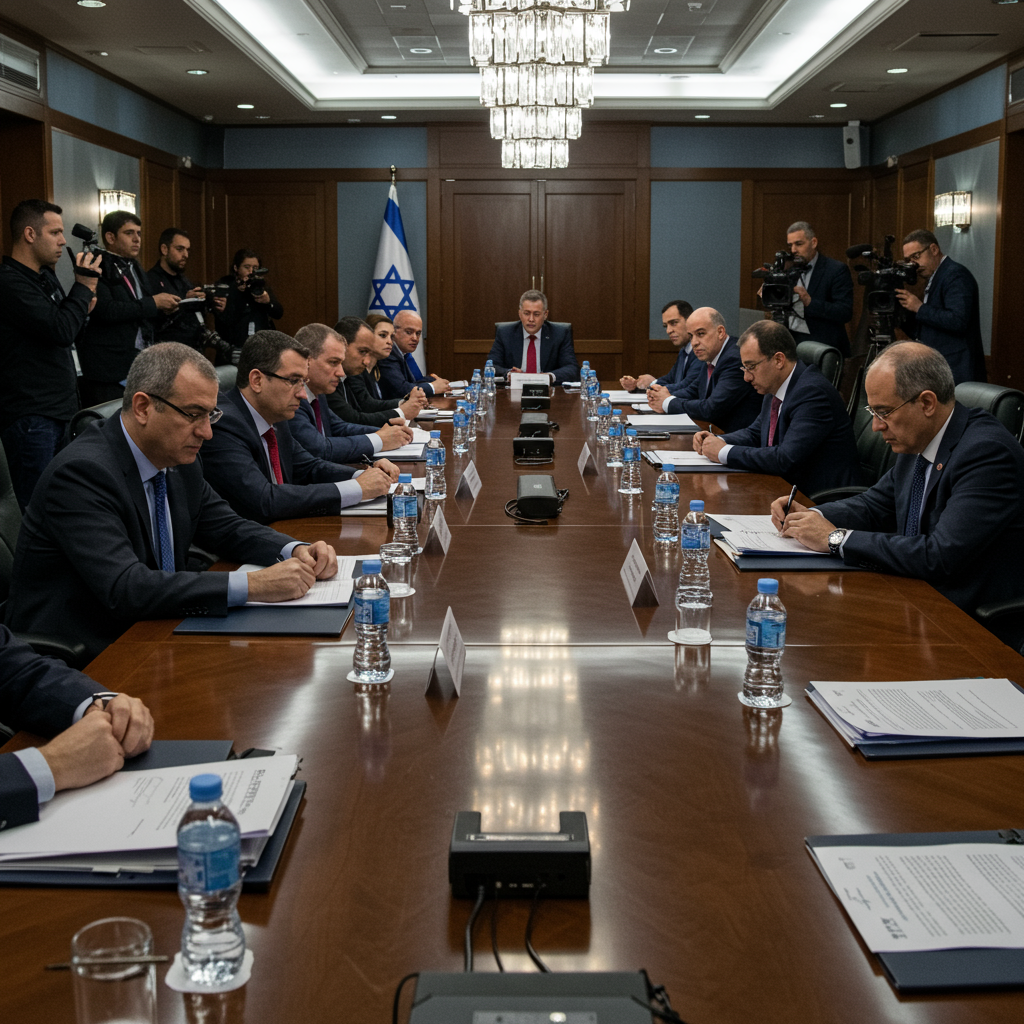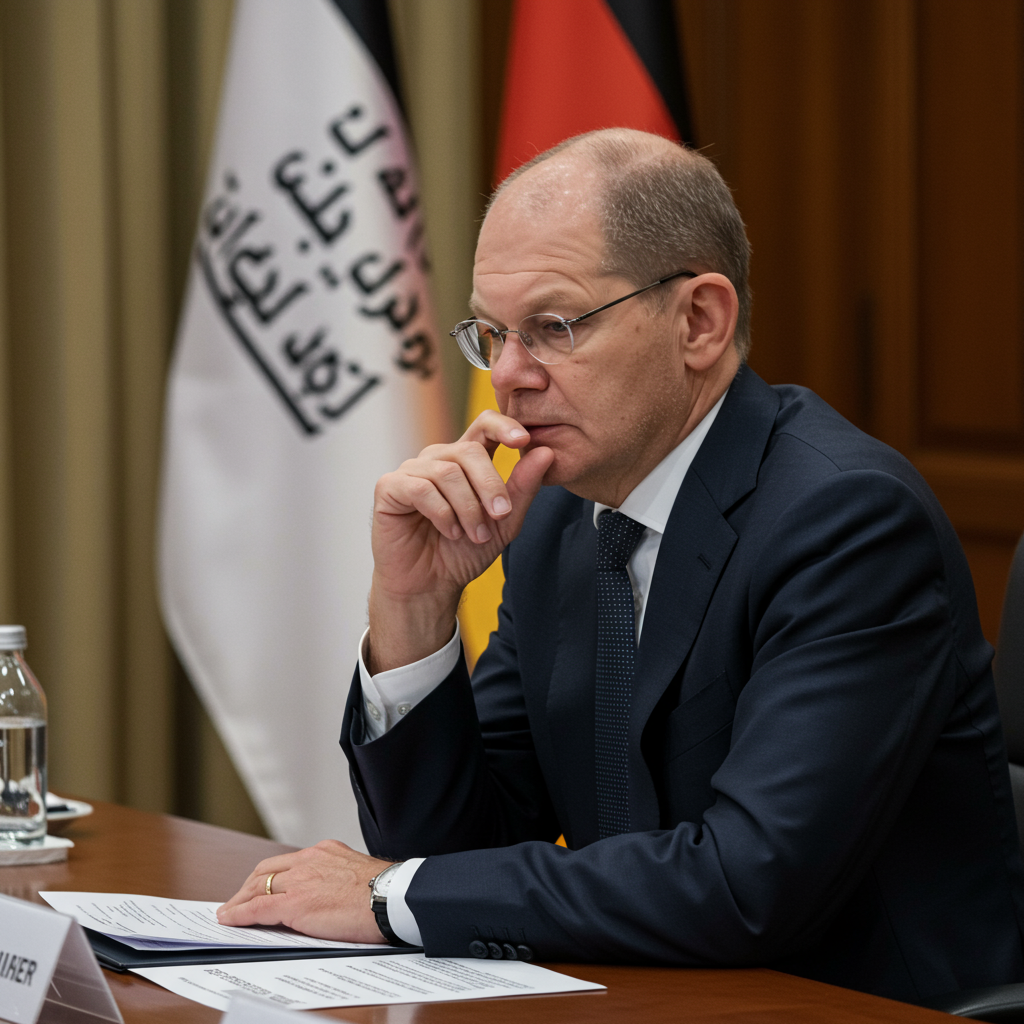Intensified Efforts for Gaza Truce Face Stalled Negotiations
Mediators are reportedly stepping up their efforts to broker a new ceasefire and hostage release agreement in Gaza. However, a senior Hamas official has indicated that negotiations with Israel remain stalled, despite the intensified contacts.
This comes amid conflicting statements regarding the potential for a breakthrough. US President Donald Trump recently claimed “great progress” was being made since the recent 12-day conflict between Israel and Iran concluded, suggesting an agreement was “very close.” Trump linked this perceived progress to US air strikes on Iranian nuclear facilities carried out during that conflict.
However, both a senior Hamas official and an Israeli official speaking to Israeli media have countered this optimism, stating that while mediators are engaged in intensive discussions, no new proposal has been received by Hamas, and major disagreements persist between the parties.
Context: The Aftermath of the Israel-Iran Conflict
The backdrop to these renewed mediation efforts is the recently ended 12-day period of heightened hostilities between Israel and Iran. This conflict, which began with Israeli strikes targeting Iranian nuclear and military sites and saw Iran launch retaliatory missile barrages towards Israel, concluded with a ceasefire brokered by the US and Qatar. The conflict itself resulted in significant casualties on both sides, including four Israelis killed in a strike on Beersheba just before the ceasefire, and reportedly over 600 deaths in Iran from Israeli strikes, alongside more than 860 Palestinian deaths in Gaza.
The end of this regional conflict has sparked divided opinion within Gaza. Some residents hope the potential weakening of Iran, a key backer of Hamas, might pressure the group to ease its demands in negotiations, potentially paving the way for a truce. Others fear Israel may now refocus its full military might back onto Gaza, leading to an intensification of strikes and ground operations. Residents in areas like Khan Younis described feeling only destruction during the recent regional flare-up, with bombing and incursions increasing.
Ongoing Violence and Humanitarian Crisis Persist in Gaza
Despite the focus on potential ceasefire talks, deadly violence continues across Gaza. On Wednesday, at least 45 Palestinians were killed by Israeli attacks, according to the Hamas-run health ministry, with some casualties occurring among those desperately seeking aid.
The humanitarian situation remains dire. Israel imposed a total blockade on aid deliveries in early March, partially easing it only after 11 weeks under international pressure. A new aid distribution mechanism, run by the Gaza Humanitarian Foundation (GHF) and backed by Israel and the US, was established. This mechanism aims to bypass the UN, which Israel and the US claim Hamas diverts aid (an accusation Hamas denies). The GHF reports distributing millions of meals since late May.
However, the GHF mechanism is highly controversial. The UN and other established aid groups refuse to cooperate with it, accusing it of violating fundamental humanitarian principles and aligning with Israeli military objectives. Compounding this, there are near-daily reports of Palestinians being killed or injured while attempting to access aid distributed near GHF sites, often located within Israeli military zones.
Gaza’s health ministry reports a staggering toll: at least 549 people killed and 4,000 injured trying to collect aid since the GHF began operations on May 26. On Wednesday alone, the Hamas-run Civil Defence reported six deaths near a GHF site in central Gaza and three others in Rafah from Israeli fire. Funerals were held in Gaza City for 33 people reportedly killed the previous day while waiting for aid. Civilians have tragically described these aid points as “death points.” A UNICEF spokesman highlighted the “lethal choice” faced by a population denied food in a combat zone. The Israeli military and GHF have denied awareness of casualties at their sites.
Beyond aid points, violence continues. An air strike reportedly killed six people, including a child, in the Nuseirat refugee camp, and five others in the town of Deir al-Balah on Wednesday.
Israeli Casualties and Domestic Pressure on Netanyahu
Adding to the pressure for a ceasefire, seven Israeli soldiers were killed in combat in southern Gaza on Tuesday in a bomb attack claimed by Hamas. This incident, involving an explosive device attached to an armored vehicle in Khan Younis, was described as the deadliest for Israeli forces since a previous two-month ceasefire collapsed on March 18. Israeli Prime Minister Benjamin Netanyahu called it “a difficult day for the people of Israel.”
The deaths have reportedly renewed domestic pressure on Netanyahu to prioritize a deal to end the fighting and secure the release of hostages. The leader of an ultra-Orthodox party within Netanyahu’s governing coalition publicly questioned the purpose of continuing the war when soldiers were consistently being killed.
The Path Forward Remains Uncertain
Efforts by the US, Qatar, and Egypt to broker a deal had previously stalled at the end of May, when Hamas sought significant amendments to a US-backed proposal for a 60-day truce. That proposal included the release of half of the estimated 50 remaining living Israeli hostages and half of those who have died in captivity.
The Israeli military resumed its offensive in Gaza in March, stating its aim was to pressure Hamas into releasing the hostages. Of the original 251 people taken hostage during the Hamas attack on Israel on October 7, 2023, in which about 1,200 people were killed, 50 are believed to still be in Gaza, with at least 20 thought to be alive.
The overall death toll in Gaza since October 7th stands at least 56,157 people, according to the territory’s health ministry.
As mediators intensify their contacts, the stark reality on the ground – marked by ongoing violence, a deepening humanitarian crisis, and tragic loss of life – underscores the urgent need for a breakthrough in the stalled negotiations.




